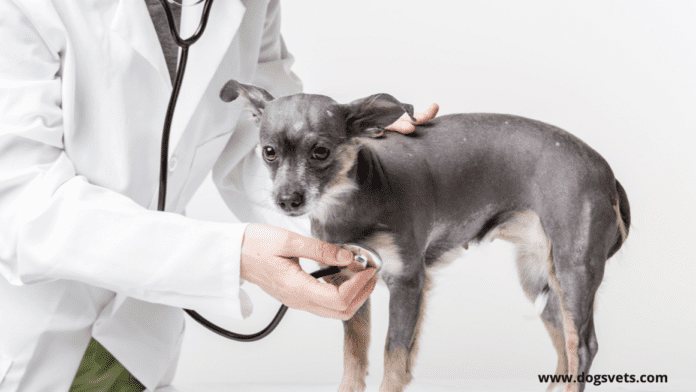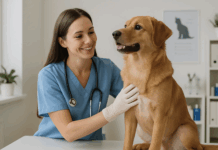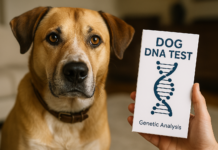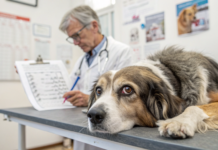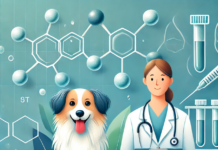Last Updated on August 12, 2022 by Dogs Vets
How to Recognize Colitis in Dogs
When you’re dealing with a dog with colitis, you’re probably wondering how to recognize it. This article will go over the symptoms and causes of colitis, as well as how to diagnose it. In addition, you’ll learn how to treat your dog if he has the disease.
Continue reading for more information. Listed below are some tips and treatment options. Read on to learn more about this condition.
Symptoms of colitis in dogs
Symptoms of colitis in dogs can be subtle or more serious. Treatment varies depending on the nature of the disease.
In some cases, stress or dietary indiscretions may trigger a sudden bout of diarrhea.
In other cases, colitis can develop after years of no symptoms. Proper diet therapy and medication can clear the condition. The presence of parasites may also be a factor. Listed below are the symptoms of colitis in dogs.
Medications for colitis are usually given by your veterinarian.
Your vet may prescribe an anti-inflammatory medication or a probiotic that helps rebalance the gut flora. The vet may also prescribe an antibacterial medication or antibiotics to treat an underlying bacterial infection. Sometimes, surgery is required to correct a perforation in the GI tract.
However, most often, the treatment is supportive, and a high quality, balanced diet is sufficient to alleviate colitis symptoms.
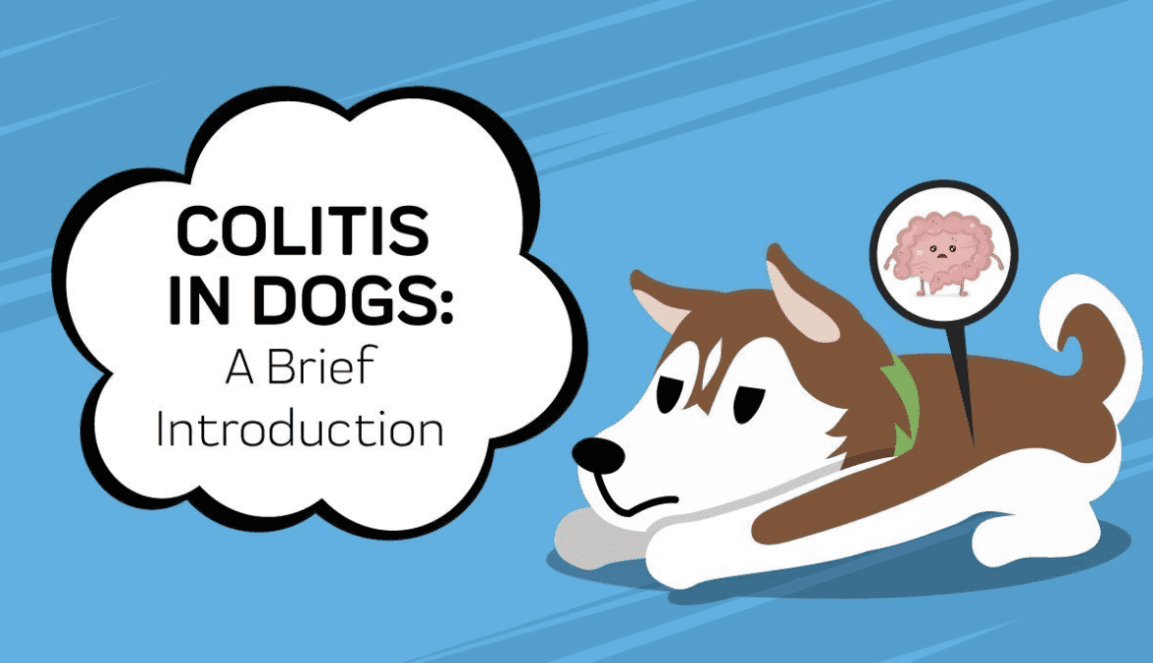
Treatment of colitis in dogs depends on the underlying cause and severity of the condition. Acute colitis typically resolves on its own after a few days. In this case, your veterinarian will suggest starvation or small, frequent meals made of a food easily digested by dogs.
This will minimize the strain on the digestive tract and allow the colon to heal. You may be able to find a suitable diet for your dog based on his specific food allergy or intolerance.
Diarrhoea is the most obvious sign of colitis in dogs. The afflicted dog will produce semi-formed or liquid faeces and may also pass a small amount of mucus and blood.
Affected dogs may also try to defecate more frequently than usual but will only produce a small amount of feces per visit. You should consult a vet to diagnose your dog with colitis.
While acute colitis occurs as a result of a sudden external trigger, chronic colitis is usually caused by a pre-existing condition or a new dietary item. It can also be triggered by stress.

In either case, diet and medication can help clear the condition. Although the symptoms of colitis in dogs vary, they are all unpleasant and potentially painful. If you notice any of these symptoms, consult with a vet immediately.
Causes of Colitis in dogs
Colitis in dogs can be caused by a variety of things, including bacterial infection or out-of-balance bacteria. Veterinary medicine will prescribe antibiotics for this condition, but you should be aware that some antibiotics are designed to kill bad bacteria, so they’re not recommended for treating colitis in dogs.
In addition to antibiotics, your veterinarian may prescribe probiotics to kill any harmful bacteria that are present.
A veterinarian can recommend a diet trial for your dog before proceeding to more serious testing. Prescription diets are high in fiber and low in fat and designed for a sensitive digestive system, so that your dog can see if there’s a food allergy.
If symptoms don’t improve after a day or two, your vet may recommend an abdominal ultrasound. This test looks for any foreign material or thickening of the intestinal walls. Swollen lymph nodes are also checked.
Finally, your vet may suggest a colonoscopy, which involves placing your dog under general anesthesia and moving a camera into your dog’s colon to view any abnormalities.
A veterinary examination is necessary to rule out the other conditions that may be causing your dog’s colitis. Your veterinarian will perform a stool sample to check for parasites or other diseases.
In some cases, a veterinarian may order an X-ray of your dog’s colon to determine if your dog has a bacterial infection.
Treatment options will depend on the cause of your dog’s colitis, but can include a diet high in fiber and fasting for two days. Antibiotics may also be prescribed if an infection is present.
Although colitis is not contagious, it can lead to colon damage, which prevents your dog from digesting food properly.
Infections and parasites may also cause colitis in dogs, but they’re unlikely to infect you.
Your veterinarian may recommend probiotics or antibiotics to help your dog get back to a healthy digestive system. They may also prescribe anti-inflammatories or anti-parasitic medications to treat the bacterial infection.
Colitis treatment options for dogs
While colitis in dogs is typically curable, flare-ups do happen from time to time. In most cases, treatment is a lifelong process and may include medications to suppress the immune system or a change in diet.

A veterinarian will recommend a course of treatment based on the severity and type of colitis. Your veterinarian will discuss other treatment options available for your dog. Listed below are some common treatments for colitis in dogs.
Dietary indiscretion and parasites may cause colitis in dogs. Giardia, coccidia, and hookworms are all possible causes of colitis. Other causes of colitis include traumatic injury to the colon or an infection.
However, in both cases, dietary changes can help relieve the symptoms.
For dogs with chronic colitis, a vet may recommend a de-worming treatment. The best treatment for your dog’s colitis will depend on the underlying causes of the condition and the specific type of colitis. Generally, a special diet and fasting for a period of 24 to 48 hours are effective.
Increasing the amount of fermentable fiber in your dog’s diet is another option. Some dogs may respond to a low-fiber diet better than others.
In severe cases, your veterinarian may prescribe an antibiotic or anti-inflammatory medication. A comprehensive history will be taken by your veterinarian. The vet will ask about recent travel, time spent around other dogs, and any unusual behavior.
If the symptoms do not improve with dietary changes, your vet will perform an abdominal ultrasound to look for foreign material in your dog’s intestines.
During this procedure, your veterinarian will look for any signs of infection, including swollen lymph nodes and the colon wall itself. If all else fails, your vet may recommend a colonoscopy. This procedure involves putting your dog under general anesthesia and moving the camera down the colon.
Thankfully, colitis in dogs is a treatable condition.
Medications and changes in diet can relieve the symptoms and your pet will be back to his old self in as little as three to five days.
However, if your dog has chronic colitis, you should see a vet as soon as possible to get him on the right treatment plan. Once he has undergone the necessary tests, he can be discharged from your vet.
Diagnosis
To make a definitive diagnosis, veterinarians will conduct a series of tests including rectal examination, microscopic evaluation of feces, and blood tests. A veterinarian may also order radiographs of the abdomen and colon to look for any abnormalities.
A barium enema is a procedure that involves injecting radiographic contrast dye directly into the colon. This is followed by X-rays of the abdomen.
The results of this test will allow your veterinarian to determine if the colitis is caused by a pancreas disease, as a deficiency of this enzyme can lead to loose stools.
If your dog suffers from acute colitis, basic treatment may cure it quickly. If the condition is chronic, however, it is more likely to recur and require additional diagnostic tests.
Medication and dietary changes can be very effective treatments for stress colitis, but more severe cases will need more advanced diagnostic testing, such as MRIs or colonoscopy.
Your vet can also recommend advanced treatment options, such as a referral to a veterinary internal medicine specialist.
A veterinarian will most likely perform a colonoscopy to make sure that the condition isn’t something else. During the procedure, your veterinarian will take your dog’s history, examine him/her, and order fecal tests to identify parasites and infections in the stool.
An abdominal X-ray may also be required to check for any foreign bodies in the intestine or tumors.
Blood tests can also be recommended to determine organ function and electrolyte balance. In order to determine a proper diagnosis of colitis in dogs, your veterinarian will likely prescribe a diet trial to help your dog regain the normal balance of gut bacteria.
Other non-specific treatments include adding fermentable fiber and increasing the amount of dietary fiber. If your dog’s symptoms don’t improve after several weeks of a prescription diet, a colonoscopy is recommended.
In this procedure, a veterinarian will insert a small camera into the rectum and move it down the colon.
A colitis diagnosis in dogs is difficult because it’s not a disease in and of itself. Rather, it’s a symptom of a different health problem.
While many underlying conditions can cause colitis, only parasitic infections are highly transmissible.
Diagnosis of colitis in dogs is crucial because untreated colitis can lead to dehydration and collapse. So, what are the symptoms of colitis?
Facts Check
We hope you enjoyed this article… What are your thoughts on Feeding Raw Meat to your dog?
Рleаse feel free to share this article!
